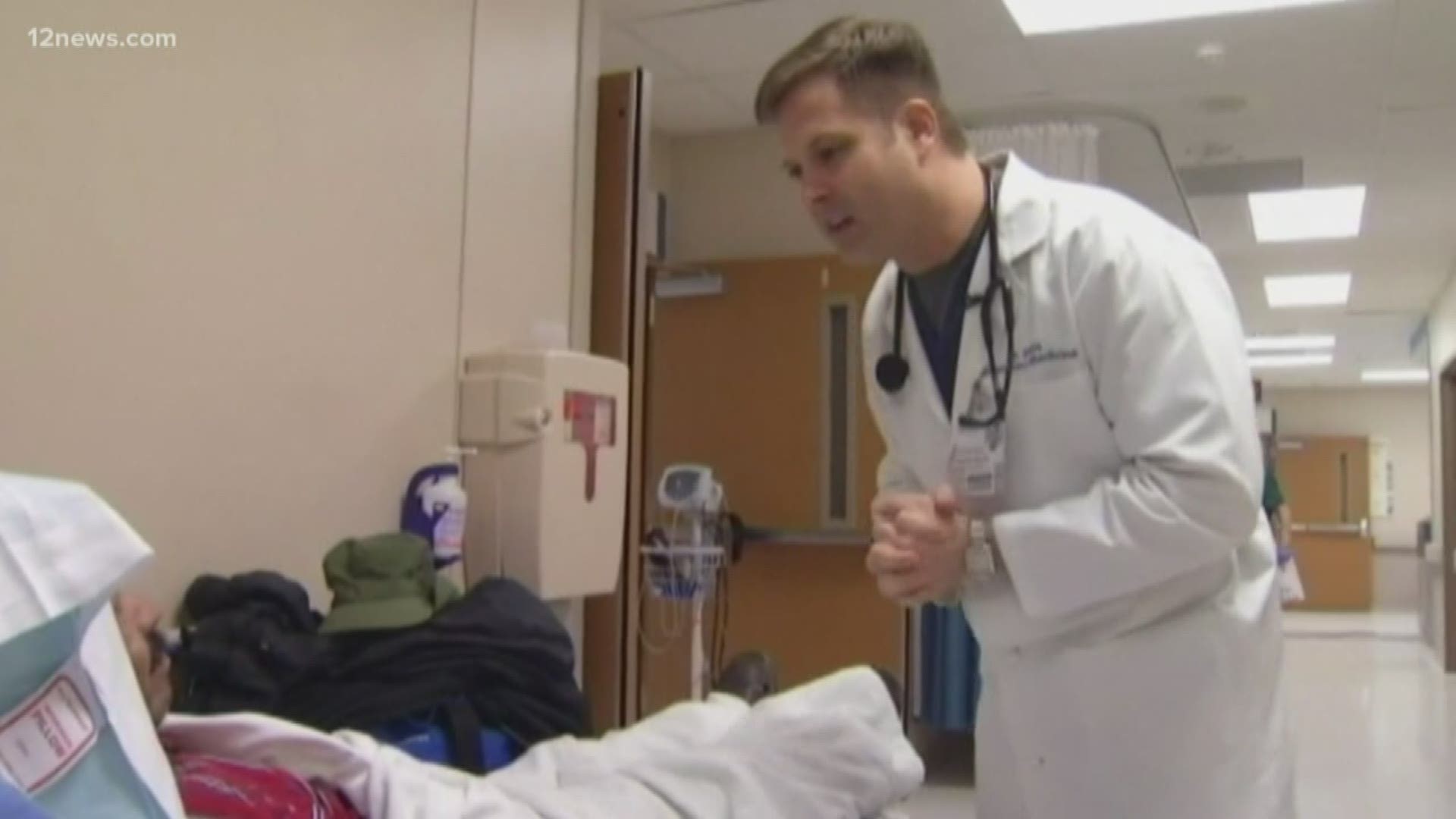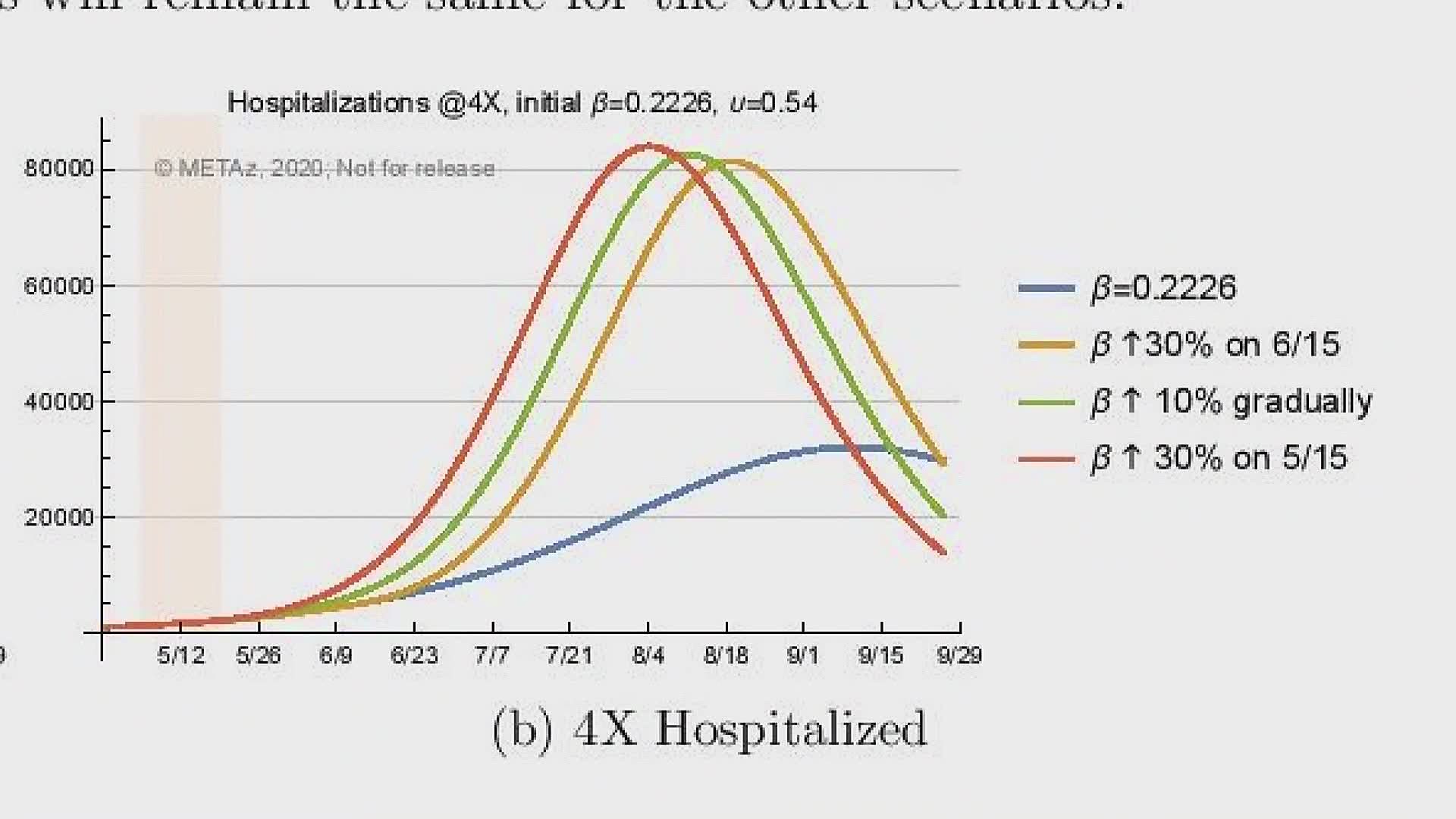PHOENIX —
Editor's Note: The above video is from previous coverage of what coronavirus does to your body.
Arizona’s stay-at-home order was lifted, and some are ready to venture out again after about six weeks under restrictions designed to slow the spread of coronavirus.
Despite the loosening of restrictions, the threat of COVID-19 is still very real, according to federal health officials. Arizona is still seeing a rise in reported cases and deaths connected to the virus.
The Center for Disease Control and Prevention estimates about 35 percent of those who have contracted coronavirus will not show symptoms.
Many of us find ourselves weighing the risks of going out to do the things we enjoy, like visiting with friends and family, eating at our favorite restaurant, or having a playdate for our kids.
We took these scenarios to Bert Jacobs, professor of virology at Arizona State University, to have him explain the risks of transmitting coronavirus in these settings.
Should I visit friends and family?
Jacobs said many older people are experiencing more severe symptoms of COVID-19. And those with underlying health conditions are at a higher risk of having more serious complications.
But this doesn’t mean they are more or less likely to catch or spread the virus, he explained.
Jacobs encourages physical distancing and wearing a mask if you are visiting anyone.
And that goes for hosting gatherings. He also suggests limiting the number of guests you have.
“The fewer number of people at any gathering the less chance that any one of those people is going to be infected with COVID-19 and potentially spread it to all the other people in the group,” Jacobs said.
He also said it is safer to gather outside (we get to that in the next section).
Should I go to a restaurant and dine in?
Being inside a crowded public building for an extended period of time with poor air circulation is a bad recipe.
Jacobs said if you choose to eat at a restaurant outside seating would be best.
“Outdoors you have more air circulation so any droplets that might contain the virus just get diluted out in the air as it is circulating around. Indoors those droplets are gonna sit there because there’s a lot less circulation,” Jacobs said.
He added sunlight kills viruses so being outside in the sun will help your chances of not being infected.
Should I let my kids play with other kids?
Let us first acknowledge the fact that most kids won’t get the concept of physical distancing -- they are kids.
And while children have mostly been spared from critical health issues associated with coronavirus they are not totally immune and health officials believe they can spread the virus.
Recent reports from New York say doctors have discovered a potentially deadly syndrome in children related to COVID-19.
These are factors that parents might want to consider before they set up a playdate.
“Whenever we get together and we don’t have social distancing there’s risk that if somebody is infected that they are going to transmit it to other people,” Jacobs said.
A good rule of thumb, so to speak, for assessing the risk of potential transmission is to try to limit your time of exposure, limit the people you are exposed to, and find an environment with good air circulation.
“But I think there are two things they need to think when they think about the risks they are willing to take, they can think about risks for themselves and their family but they also need to think about the risk for society as a whole and that’s where it gets really difficult,” Jacobs said.
COVID-19 is believed to be primarily spread through coughs or sneezes.
It may be possible for the virus to spread by touching a surface or object with the virus and then a person touching their mouth, nose or eyes, but this is not thought to be the main method of spread, the CDC says.
You should consult your doctor if you traveled to an area currently affected by COVID-19 and feel sick with fever, cough or difficulty breathing.
There is no vaccine for the coronavirus, so the best way to prevent COVID-19 and other respiratory diseases is to:
- Avoid close contact with people who are sick.
- Avoid touching your eyes, nose, and mouth.
- Stay home when you are sick.
- Cover your cough or sneeze with a tissue, then throw the tissue in the trash.
- Clean and disinfect frequently-touched objects and surfaces using a regular household cleaning spray or wipe.
- Wash your hands often with soap and water for at least 20 seconds. If soap and water are not readily available, use an alcohol-based hand sanitizer.
You can text FACTS to 602-444-1212 to receive more information on the coronavirus and to ask questions.


